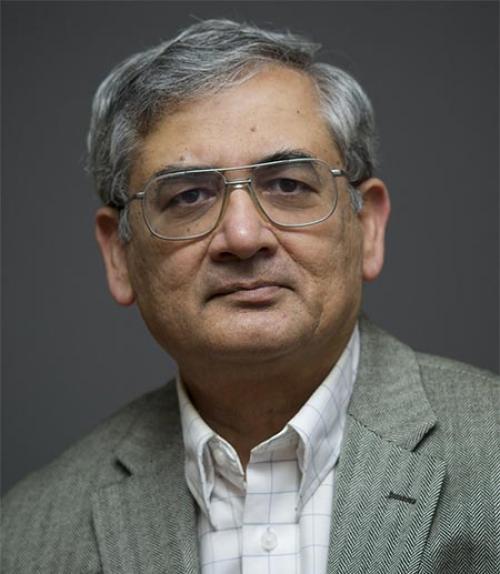Tapan Mitra, the Goldwin Smith Professor of Economics and a leading economic theorist of his generation, died of cancer Feb. 3 in Ithaca, New York. He was 70.
Mitra wrote or edited more than 150 publications in economic theory and applied mathematics. A prolific researcher, Mitra made definitive, pioneering contributions to the efficiency and equity of intertemporal allocation of resources, capital theory and economic dynamics.
He joined Cornell’s faculty in 1981 and was appointed Goldwin Smith Professor of Economics in 2007.
Mitra worked in several other areas, including: chaotic dynamics; renewable and exhaustible resources, their sustainability and extinction; choice of technique in development planning; and forestry economics.
In an obituary prepared for The Society for the Advancement of Economic Theory, Mukul Majumdar, the H.T. Warshow and Robert Irving Warshow Professor of Economics and Mitra’s cousin, and M. Ali Khan, the Abram Hutzler Professor of Political Economy at Johns Hopkins University, wrote that Mitra was “a craftsman of the highest degree, a mathematical economist’s economist, his striking and decisive examples had as much an impact on serious economic scholarship as did his theorems and his proofs. To repeat, his pen unified the literature, opened up new directions and invariably redefined the state of the art.”
To celebrate Mitra’s 60th birthday, colleagues participated in an economic theory conference at Cornell in July 2008. The proceedings were published in March 2010 as a special issue of the International Journal of Economic Theory, dedicated to Mitra and focusing on growth, sustainability and equilibria.
“Tapan was one of the world’s finest mathematical economists,” said Kaushik Basu, professor of economics and Carl Marks Professor of International Studies. “What many do not know, and what I discovered during my several years of research collaboration with him, was his mind of total clarity. This enabled him to do economics from scratch, in a way that even school kids could follow, all the way to plumb the intricacies of our economic world.”
In addition to his academic work, Mitra chaired the Department of Economics twice – 1993-98 and 1999-2002 – and directed graduate studies in the field of economics 2005-10.
“This is an extraordinary service record, especially given the large volume of important research he published over this time period,” said Michael Lovenheim, the Donald C. Opatrny ’74 Chair of the Department of Economics.
As chair, Mitra was instrumental in recruiting many of the most prominent economists in the department.
“He was a true institution-builder and was one of the main architects of the current Cornell economics community. His imprint is still highly present in the shape and character of the economics department,” Lovenheim said, noting Mitra’s graduate students rank among the most prominent economists to have received their doctorates from Cornell.
Mitra’s honors included the award of an Alfred P. Sloan Research Fellowship 1981-83. In 2017, he was elected a fellow of the Society for the Advancement of Economic Theory. He was also a fellow of the Econometric Society.
He was on the inaugural editorial boards of the journal Economic Theory and of the International Journal of Economic Theory. He also served on the editorial boards of Zeitschrift für Nationalökonomie (Journal of Economics), Contemporary Issues and Ideas in Social Sciences, and Environmental Economics and Policy Studies.
While battling cancer for the last decade, Mitra continued his research and published in his field’s leading journals. In 2018, his colleagues and collaborators from around the world gathered in Ithaca to celebrate his 70th birthday.
Mitra was born in 1948 in Kolkata, India. He earned a bachelor’s in economics with honors from Calcutta University in 1968 and a master’s in economics from Delhi University in 1970. At the University of Rochester, he earned a master’s in economics in 1973 and a Ph.D., also in economics, in 1975. Before coming to Cornell, he taught at the University of Rochester, the University of Illinois, Chicago, and the State University of New York, Stony Brook.
Toward the end of his career, he established the Tapan Mitra prizes for graduate and undergraduate research, he said, as a “concrete expression of my continuing attachment to this great institution of learning.”
“His loss is a loss not only to his students and his co-authors – the line between the two not always clear in this case – but surely also to substantive and advanced economic theory,” Majumdar and Khan wrote.
A memorial service will be held at Cornell in the spring.
This article also appeared in the Cornell Chronicle.




